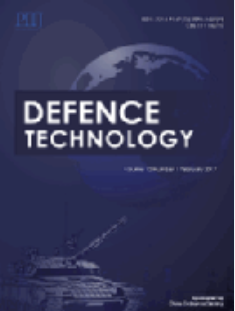Controlling update distance and enhancing fair trainable prototypes in federated learning under data and model heterogeneity
IF 5.9
Q1 ENGINEERING, MULTIDISCIPLINARY
引用次数: 0
Abstract
Heterogeneous federated learning (HtFL) has gained significant attention due to its ability to accommodate diverse models and data from distributed combat units. The prototype-based HtFL methods were proposed to reduce the high communication cost of transmitting model parameters. These methods allow for the sharing of only class representatives between heterogeneous clients while maintaining privacy. However, existing prototype learning approaches fail to take the data distribution of clients into consideration, which results in suboptimal global prototype learning and insufficient client model personalization capabilities. To address these issues, we propose a fair trainable prototype federated learning (FedFTP) algorithm, which employs a fair sampling training prototype (FSTP) mechanism and a hyperbolic space constraints (HSC) mechanism to enhance the fairness and effectiveness of prototype learning on the server in heterogeneous environments. Furthermore, a local prototype stable update (LPSU) mechanism is proposed as a means of maintaining personalization while promoting global consistency, based on contrastive learning. Comprehensive experimental results demonstrate that FedFTP achieves state-of-the-art performance in HtFL scenarios.
数据和模型异构条件下联邦学习中更新距离控制与可训练公平原型的增强
异构联邦学习(HtFL)由于能够适应来自分布式作战单位的各种模型和数据而获得了极大的关注。为了降低模型参数传输的通信成本,提出了基于原型的HtFL方法。这些方法允许在异构客户机之间只共享类代表,同时保持隐私。然而,现有的原型学习方法没有考虑到客户端的数据分布,导致全局原型学习不够理想,客户端模型个性化能力不足。为了解决这些问题,我们提出了一种公平可训练原型联邦学习(FedFTP)算法,该算法采用公平抽样训练原型(FSTP)机制和双曲空间约束(HSC)机制来提高异构环境下服务器上原型学习的公平性和有效性。此外,提出了一种基于对比学习的局部原型稳定更新(LPSU)机制,作为在保持个性化的同时促进全局一致性的手段。综合实验结果表明,FedFTP在html场景下达到了最先进的性能。
本文章由计算机程序翻译,如有差异,请以英文原文为准。
求助全文
约1分钟内获得全文
求助全文
来源期刊

Defence Technology(防务技术)
Mechanical Engineering, Control and Systems Engineering, Industrial and Manufacturing Engineering
CiteScore
8.70
自引率
0.00%
发文量
728
审稿时长
25 days
期刊介绍:
Defence Technology, a peer reviewed journal, is published monthly and aims to become the best international academic exchange platform for the research related to defence technology. It publishes original research papers having direct bearing on defence, with a balanced coverage on analytical, experimental, numerical simulation and applied investigations. It covers various disciplines of science, technology and engineering.
 求助内容:
求助内容: 应助结果提醒方式:
应助结果提醒方式:


